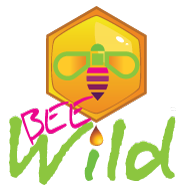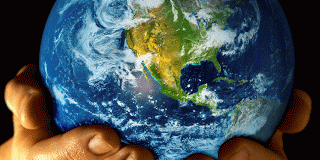What Can I Do to Turn the Tide? (How Can I Make Sure My Food Is Good for Me and Mine?)
Knowledge is Power
Without a doubt, we have shown you that GMOs and pesticides are killing pollinators and damaging the food you eat. In consequence you may be having or on the way to having health issues. We shared this information so that you pay attention to the hand-in-glove activities of corporations and the American Government. Without awareness of what is happening in farming and food processing, you don’t have an accurate baseline to start from. Bee Wild will continue to share the latest studies and articles on GMOs, pesticides, and their effect on pollinators as well as what you can do to change things for you. So, please visit our blog, Facebook Fan Page, and Twitter feed daily.
Let’s Go Viral!
Once you’ve gained some knowledge about the issues of GMOs, pesticides, and their effect on pollinators, food production, and your health, share this information with family and friends. Once they have a grip on what the system is offering and what their choices are, ask them to share what they have learned with their family and friends. Let’s blog, post, and tweet on these issues as much as we can. The more people who understand what’s at stake, the less control corporate agriculture has on the food you eat.
Take Your Power Back
Don’t automatically assume that the FDA and other governmental agencies are influence-free. Don’t habitually assume that when a corporation announces that they are genetically engineering a larger fish to feed more people that this is healthy for you and your family. Don’t assume that your food is growth-hormone free, and don’t assume that growth hormones in your food produce health for you and your children. Become an educated consumer and vote with your dollars. (Buy what you know is good for you; don’t buy what is not.) Stop paying attention to marketing hype and educate yourself.
Realize that We Are All Connected
When you come to the realization that the child starving in India is part of the greater human community and that the conditions and thinking that caused that starvation can be applied to anyone, you will wake up to the notion that making a difference on the issue of food is good for you, good for everyone. When you come to the realization that when pollinators, plants, trees, water, and good soil become scarce through misuse, starvation will become a local, not just a global problem.
Scarcity is a Fiction
I had the pleasure of talking to Paul Zane Pilzer, a friend of a friend, right after he wrote the book Unlimited Wealth. In our conversation, Paul said the first thing they taught him in college is that “Economics is the study of the allocation of scarce resources.” Paul said that this is why economic systems don’t work; they are based on a false premise.
So, why would corporations and governments want you to assume that money and food is scarce? If you dig deeper, you’ll find that scarcity is a way to control who has what, what things costs, and how much people are paid for their work. With money being electronically accounted for and transferred, all offers and exchanges are artificially set. They are just electronic blips on the screen.
Consider the Birds of the Air
I had the pleasure of doing a seminar with prosperity teacher, Edwine Gaines. I would like to interpret what she shared because to this day, her teaching has positively impacted my wealth thinking:
How many pounds of bird seed do wild birds eat a year? thousands? tens of thousands? hundreds of thousands? There was a study done about this, and it turns out that wild birds eat nearly a billion pounds of bird seed a year. Where does it come from? Do they work for it? fight wars over it? try to control seeds? genetically modify plants to produce more seeds? use pesticides to kill insects so they have enough seeds? No, birds let Nature provide for them naturally. All they do is look for seeds when they are hungry.
Folks, the food is out there and is particularly nutritious and healthy when it comes from local farmers who work with Nature instead of trying to bend Nature to their will.
Practical Actions You Can Take Now
- Buy local, seasonal, organic, free-range, grass-fed food. You can purchase either directly from a farmer or go to the nearest farmer’s market to find health-producing natural food.
- If food costs are an issue for you, form a food coop with you neighbors. Buy in bulk and divide the food costs.
- Grow at least some of your own food. If you live in an apartment, grow herbs on your window sill. If you have a sunny patch in your yard, use it to grow food. If you have an island on your street, talk to neighbors about you growing food together there.
- Use organic cultivation and food production methods. Work your soil, augment with compost that you make from veggie scraps, get organic processed manure from a local farmer, and use interplanting and other organic methods to move insects out of your garden.
- Catch rain water in closed containers (so you don’t get mosquito larva in the water) and water your garden from those containers, when it is hot and dry.
- Walk in your garden barefoot and enjoy being outside in the sun.
Make Technology Work for You
Technology has its place in the world. Certainly, the Internet is a huge benefit to us all. Information transfers in seconds. Researching is easier. We can meet people in far off places that we wouldn’t be able to meet, otherwise. So, when it comes to your food, use technology wisely. Connect with farmers in other countries and find out what their organic methods are. Talk to beekeepers worldwide and get educated on Colony Collapse Disorder. Share your concerns and ask for help from people who have already formed food coops.
The choice is in your hands now. May you be blessed with wisdom and the energy to act.
QueenBee








